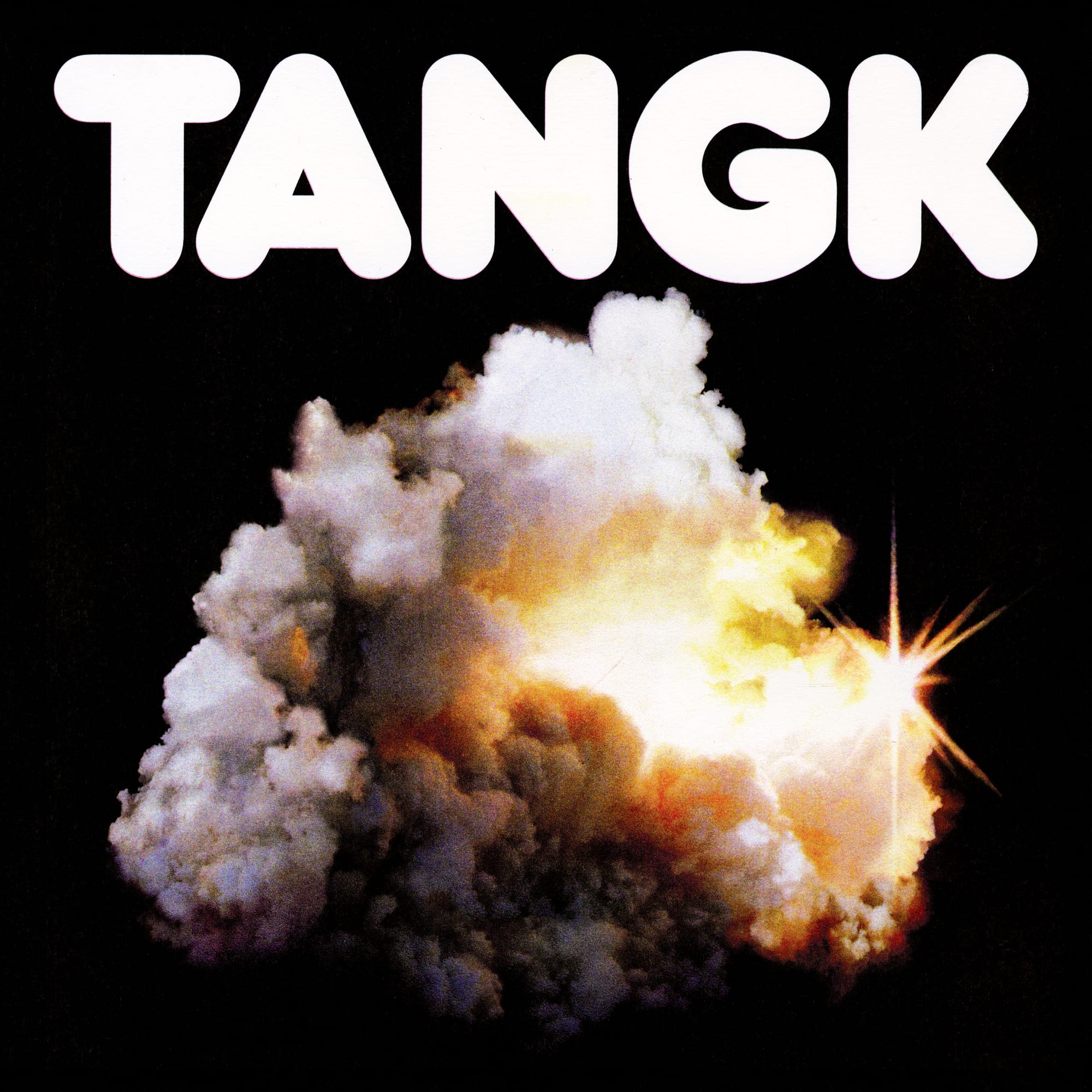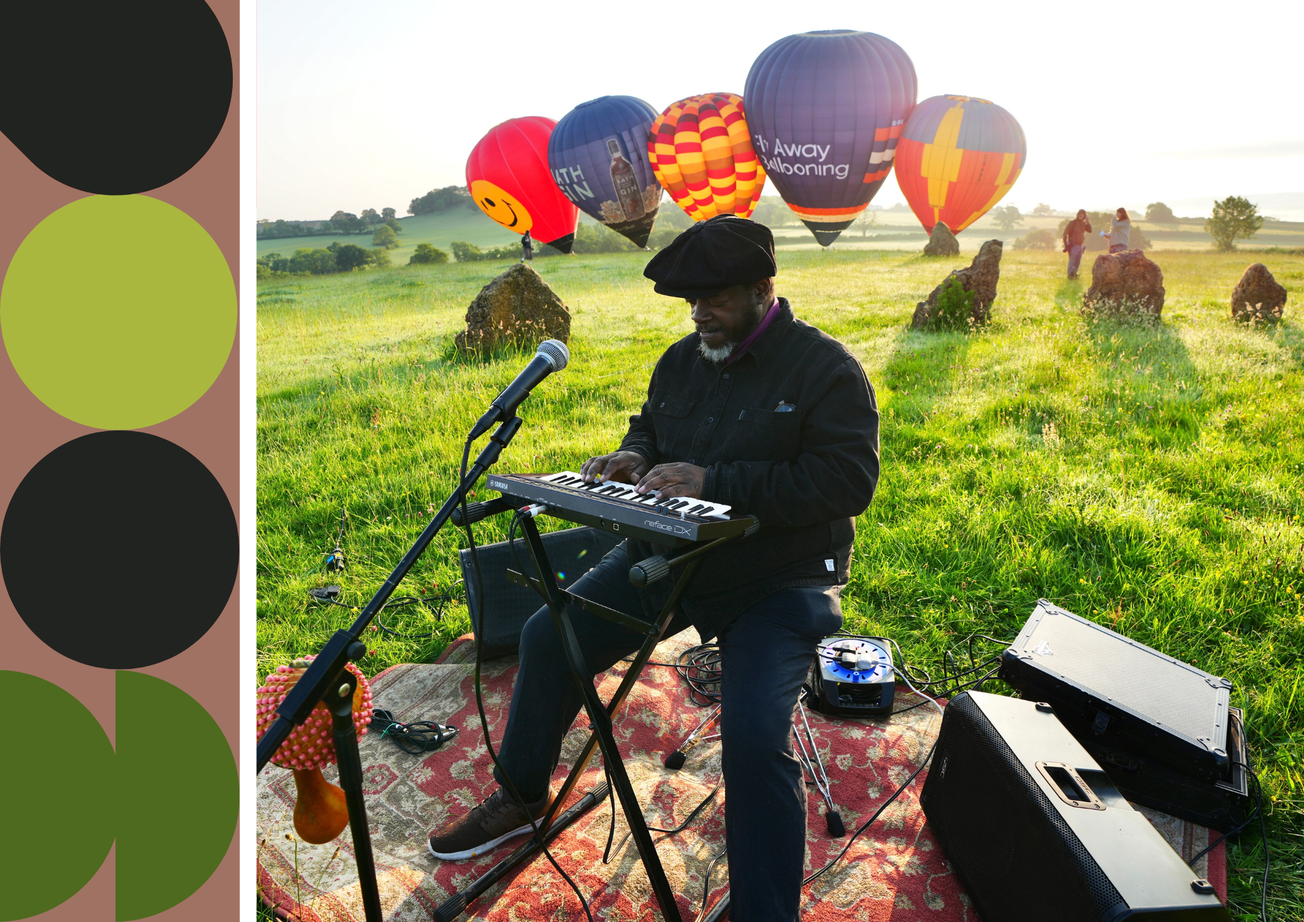By Bethany Strand, Third Year, English
‘If you’re honest and love something enough and you put it on record, then people will see that love. Whether they like it or not is not your f***king problem.’ IDLES frontman Joe Talbot tells NME. Reading this, I can only assume he doesn’t care much for opinionated music reviews.
Having said that, the honesty and love he speaks of certainly has made its way into IDLES’ newest record, ‘TANGK’. The band has an affinity for this kind of guttural utterance – ‘LOVE IS THE FING’ has been the promotional catchphrase for the new album, an encapsulation of its ethos of interiority, identity, and quite simply love, presented to the listener in a caps-lock explosion that asserts its affection with tender ferocity. Each song on the band’s 5th album is a ‘particle of punch drunk love’, to quote the lead single, ‘Dancer’. IDLES get right up in your face, but proceed give you a kiss on the cheek, rather than a thump in the head.
The band are identifiable by their lyrics of righteous anger, humour, and satire that sometimes border on self-parody. But they show that thrashy, punky and angsty sounds aren’t always reflective of hostile or aggressive masculinities – IDLES’ sound is passionate, and deeply feeling. The band’s poetic sensibilities have never been higher than they are in ‘TANGK’ – Talbot’s guttural cries celebrate ‘Gratitude’, ‘Grace’, life’s gifts, joy. There is a notable shift toward sentimentality and honesty, a perhaps more useful repurposing of their previous angst and rage.

The opening track, ‘IDEA 01’, is unlike any previous IDLES song, bearing the imprint of newly recruited Nigel Godrich (Radiohead, U2, Arcade Fire, R.E.M.) It’s a plunge into isolation, alone with Tabolt’s vocals which are, for once, almost delicate – only a soft piano melody twinkles behind him. It is a slow burn that doesn’t reach a quintessential IDLES roar; this is delayed until Track 2, ‘Gift Horse’, which takes on this task with galloping gusto.
Lyrically the track embodies the theme of the album – love, but still Talbot can’t resist vocalising his scorn for today's British state. IDLES’ socially conscious and left-wing ethos is important to their identity, despite occasionally coming across a little sloganized and reductive. Singing about his daughter, Tablot melodises: ‘My baby is beautiful / All is love and love is all’ Before shouting, ‘F**k the king, he ain’t the king, she’s the king!’, as another explosive chorus ensues. Previously, IDLES’ social commentary has been defined by satire and ironic detachment. Now, Talbot aims to explore injustice in Britain through love, rather than hate. Yes, he says, there is a king, someone worthy of my reverence and worship – and it’s my family.
Track 3, ‘POP POP POP’, is my personal favourite track. Talbot sings about ‘Freudenfreude’, the act of taking pleasure in someone else’s joy or success, an apt description of my experience watching them launch their 5th studio album. The accumulative lyrics of ‘joy on joy’ don’t find a mirror in the song’s cadence, which is deadpan and dreadful (in the literal sense). The punchy, relentless repetitiveness of the song, reflected in its onomatopoeic title, reminds us to keep going, day by day, to keep loving through the darker times – as Talbot reminds us in the final refrain, ultimately, ‘love is the fing’.

The most empowering track on the album for me is ‘Dancer’, which commands the listener to let go. Talbot says himself: ‘there’s something deeply primal about dancing, particularly when doing it with a group of people.’ The song brings its listeners ‘hip to hip, cheek to cheek’, ‘sweat’ dripping from every line. Accompanied by Talbot’s signature growl, ‘Dancer’ is gritty and instinctual. IDLES encourage an aggressive primality, but one that arises out of love and passion, not anger and hate. In ‘Roy’, Talbot explores this precarious balancing act between his softer side and his more primal impulses:– ‘I am baby’s breath, I dance with death’.
‘Hall and Oates’ is another direct, hearty and to-the-point ode to love, this time to male friendship and the emotional vulnerability it can offer: ‘I love my man, I love’ Talbot chants, singing to Bristol-based singer-songwriter Willie J Healey, whom he felt like he was ‘falling in love’ with as they supported each other through the pandemic.
Talbot tells NME that he wants IDLES ‘to be infectious in a way that makes people feel, not think.’ ‘TANGK’, is visceral and bodily, excreting blood, sweat and tears from start to finish. It represents a step back from outward political diatribe, moving inwards to explore sensations and emotions over arguments and ideas. ‘TANGK’ hones in on the unique, and frequently disorienting, experience of owning a body and a heart and the joy that ensues from sharing these things with other people. The band’s political engagement is still core to their ethos, though – for this very joy, one might say, is an act of resistance.
Featured Image: Tom Ham
Have you listened to TANGK?








